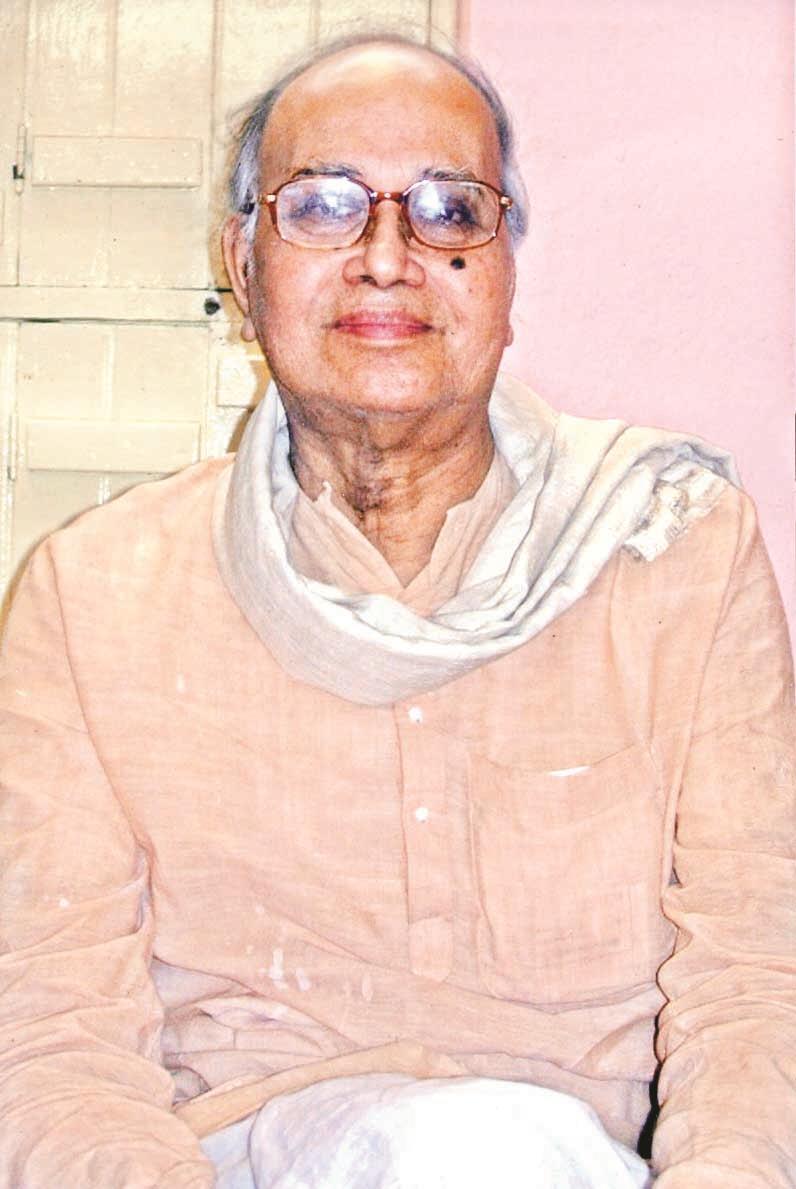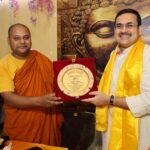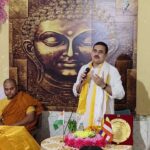WALKING THE PATH OF TRUTH, ALL ALONE
- By : Anirban Ganguly
- Category : Articles

Professor Sankari Prasad Basu had devoted his life to an unrivalled research into the life and times of Swami Vivekananda. He has left behind a rich legacy
One of Swami Vivekananda’s foremost biographers, Professor Sankari Prasad Basu, recently passed away. The prolific Prof Basu chose to silently fade away, having dedicated a lifetime of prolific research on the life and times of Vivekananda. A litterateur-turned- historian, Basu’s chosen dimension of Vivekananda’s life was the monk’s epochal role in India’s regeneration and in the awakening of the aspiration for freedom.
What the legendary ‘Sri M’ or Mahendra Nath Gupta was to Sri Ramakrishna in preserving the Master’s words and serving it in its pristine earthiness and profundity for generations in India and across continents through his Gospel of Sri Ramakrishna, Sankari Prasad Basu was to Vivekananda. A herculean, exhausting and often friendless effort saw him produce some of the most detailed and moving study of the monk’s life. His seven volume opus Vivekananda O Samakalin Bharatvarsha (Vivekananda and Contemporary India) has often been compared to Gibbon’s Decline and Fall of the Roman Empire, or to Romain Rolland’s Jean Christophe in its breadth, popularity and attention for detail.
A historians’ and general readers’ delight, the work, which won the Sahitya Akademi award in 1978, remains one of the most popular and yet scholarly study of Vivekananda. Nothing seems to have escaped Basu’s attention, reflecting the man’s wide reading and capacity for presenting Vivekananda on civilisational terms. In it one discovers Vivekananda against the backdrop of a number of dimensions and fields of our national life. Be it national regeneration, the intellectual and the nationalist movement, Indian literature, the cultural and swadeshi phase, be it education, or civilisational issues or the future of India, Basu read and reflected on all these by placing Vivekananda at the centre of it all and portraying a personality who was remarkable and breathtakingly multifaceted and complex in his interests, national action and worldview.
Basu’s another lasting contribution to Vivekananda literature was his exhaustive two-volume study, Swami Vivekananda in Contemporary Indian News (1893-1902), a work that brought to together a wide range of newspaper reports on the action packed life of Vivekananda post his recognition on the world stage while defending India and Hinduism. This work saw him ceaselessly travel across India, access musty records and dusty libraries and in a pre-computer and internet age make copious copies of these records for posterity. In this effort he received unstinted help not only from the monks of the Ramakrishna Mission but by a large number of private individuals, some of whom had the privilege of having met the Master himself. It brought him in touch, for instance, with the legendary Kannada philosopher and intellectual DV Gundappa, who had played a seminal role in spreading the Swami’s message in the south. More importantly it revealed to Basu how widely accepted the Swami remained and how, even decades after his passing, his thought galvanised people into selfless action.
But it is perhaps because Basu primarily wrote in an Indian language, was not strictly speaking a ‘historian’ — in fact he was often derisively referred to by ‘eminent historians’ as a ‘devotee-historian’ — and did not attempt to falsely secularise the life and message of Vivekananda or to study him under the fashionable Freudian lens, that he received few accolades and remained broadly négligé. He refused to fit into a mould which would have quite easily earned for him recognition and ‘peer acceptance’, ignoring political correctness he did not, for example, hesitate to point out how the world wide evangelical missionary network even then, in the 1890s, raucously and viciously opposed Vivekananda when he sought to counter their false propaganda against India and Hindus.
As he once wrote, “Unless one understands the stiff opposition that Vivekananda countered during his lifetime, it is impossible to internalise the magnitude of his personality. Hence I have exposed his adversaries. For me Vivekananda and India are placed on the highest pedestal.” Sankari Prasad’s life in itself was an expression of that conviction.

















